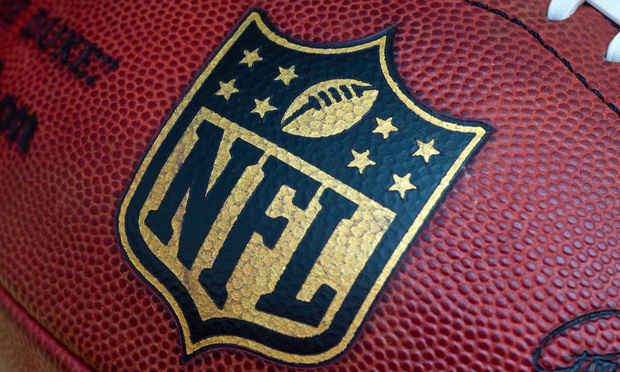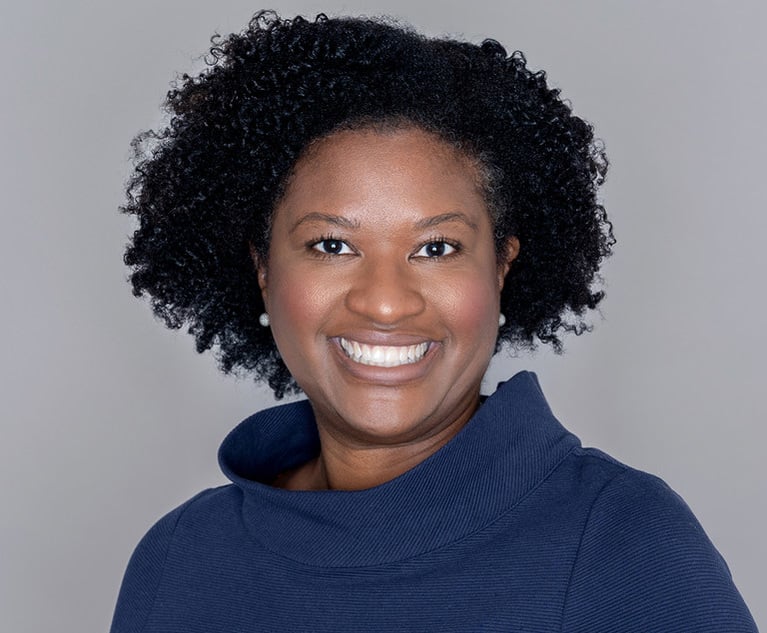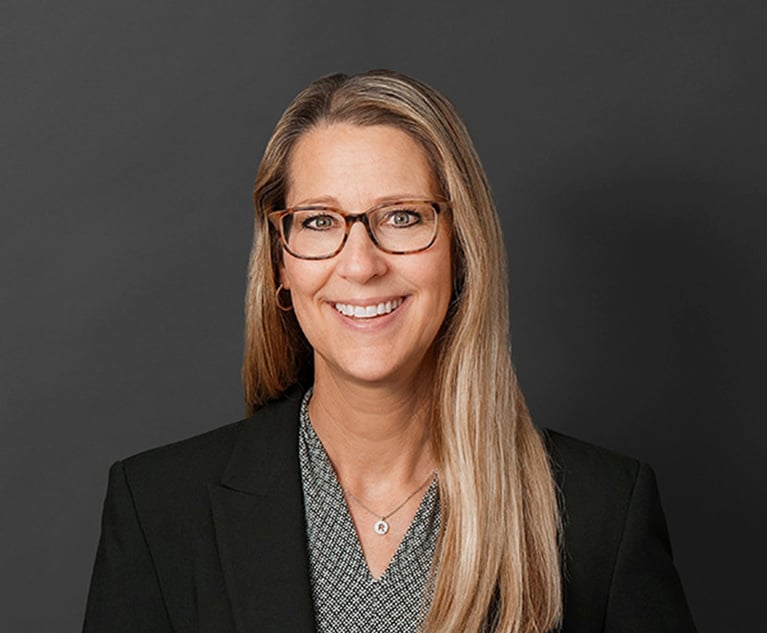NFL Concussion Lawyers Question Expert's Analysis of Attorney Fees
Several leading law firms in the NFL concussion settlement litigation are taking issue with an expert report that suggested slashing attorney fee recoveries.
January 04, 2018 at 03:06 PM
4 minute read
 Photo: Shutterstock.com
Photo: Shutterstock.com
Several leading law firms in the NFL concussion settlement litigation are taking issue with an expert report that suggested slashing attorney fee recoveries.
More than 10 law firms have filed responses to a December expert report that recommended capping attorney fees. Attorneys questioning the report's conclusions included both Chris Seeger of Seeger Weiss and Sol Weiss of Anapol Weiss, who are co-lead class counsel in the litigation that came to a $1 billion settlement with the National Football Association in early 2015.
Most responses from the attorneys questioned the assumptions underpinning the report Harvard professor William Rubenstein issued last month, and some said that capping attorney fees could damage some of the former players' ability to recover under the settlement.
Seeger's response, filed Wednesday, specifically took issue with Rubenstein's determination that, since the litigation settled relatively quickly, it was reasonable to recommend that the court reject a proposed 5 percent set-aside that would go toward a common benefit fund for class counsel attorneys.
“Any suggestion that class counsel did not invest sufficient time in this litigation to warrant the requested $106.8 million in common benefit fees is simply wrong,” Seeger said. “Although this may not have been a typical MDL involving extensive discovery bellwether trials, and the like, all kinds of labor, resources, and ingenuity went into resolving this litigation.”
Last year, class counsel asked U.S. District Judge Anita Brody of the Eastern District of Pennsylvania, who is overseeing the litigation, to approve $112.5 million for attorney fees and costs stemming from the settlement, which is intended to compensate about 20,000 former players suffering from concussion-related injuries. The NFL has agreed to pay the money in addition to the money for the class members.
The fee request included a 15.6 percent rate for attorneys representing claimants directly, along with the 5 percent set-aside that would be paid to the common benefit fund either from attorney fees, if the claimant had individual representation, or from the claimants' recovery if they were unrepresented.
Rubenstein, who Brody asked to review the fee request, issued a 47-page expert report in mid-December recommending a presumptive 15 percent cap on contingency fees and that the court not adopt the 5 percent set-aside.
Responses largely took issue with the class participation rate Rubenstein used, and said the report did not take into account how vigorously the NFL would contest some of the claimant's petitions.
A filing Wednesday by X1Law said attorneys also said that cutting the fees could have a chilling effect on attorneys wanting to represent claimants who have difficult cases.
“Capping attorney's fees at 15 percent would cut the legs out from under independently retained plaintiff's attorneys [IRPAs] due to the time and risk involved in this complex and contentious claims process, essentially gutting their ability to represent class members by making the representation financially dangerous,” X1Law attorney Patrick Tighe said in the filing. “Professor Rubenstein's proposed cap would severely chill access to IRPAs, limiting IRPA advocacy and oversight, resulting in a lack of oversight in any otherwise dangerous claims process for class members.”
When reached for comment, Tighe said a 15 percent cap on fees would specifically impact players whose symptoms do not presently show up on tests, but may manifest in a few years.
“It's going to eliminate a vast majority of class members from being able to present a claim,” he said.
A spokeswoman for Seeger did not immediately respond to a request for comment. Weiss also did not immediately return a phone call seeking comment.
This content has been archived. It is available through our partners, LexisNexis® and Bloomberg Law.
To view this content, please continue to their sites.
Not a Lexis Subscriber?
Subscribe Now
Not a Bloomberg Law Subscriber?
Subscribe Now
NOT FOR REPRINT
© 2025 ALM Global, LLC, All Rights Reserved. Request academic re-use from www.copyright.com. All other uses, submit a request to [email protected]. For more information visit Asset & Logo Licensing.
You Might Like
View All


Penn State Dickinson Law Dean Named President-Elect of Association of American Law Schools
Trending Stories
- 1Courts Grapple With The Corporate Transparency Act
- 2FTC Chair Lina Khan Sues John Deere Over 'Right to Repair,' Infuriates Successor
- 3‘Facebook’s Descent Into Toxic Masculinity’ Prompts Stanford Professor to Drop Meta as Client
- 4Pa. Superior Court: Sorority's Interview Notes Not Shielded From Discovery in Lawsuit Over Student's Death
- 5Kraken’s Chief Legal Officer Exits, Eyes Role in Trump Administration
Who Got The Work
J. Brugh Lower of Gibbons has entered an appearance for industrial equipment supplier Devco Corporation in a pending trademark infringement lawsuit. The suit, accusing the defendant of selling knock-off Graco products, was filed Dec. 18 in New Jersey District Court by Rivkin Radler on behalf of Graco Inc. and Graco Minnesota. The case, assigned to U.S. District Judge Zahid N. Quraishi, is 3:24-cv-11294, Graco Inc. et al v. Devco Corporation.
Who Got The Work
Rebecca Maller-Stein and Kent A. Yalowitz of Arnold & Porter Kaye Scholer have entered their appearances for Hanaco Venture Capital and its executives, Lior Prosor and David Frankel, in a pending securities lawsuit. The action, filed on Dec. 24 in New York Southern District Court by Zell, Aron & Co. on behalf of Goldeneye Advisors, accuses the defendants of negligently and fraudulently managing the plaintiff's $1 million investment. The case, assigned to U.S. District Judge Vernon S. Broderick, is 1:24-cv-09918, Goldeneye Advisors, LLC v. Hanaco Venture Capital, Ltd. et al.
Who Got The Work
Attorneys from A&O Shearman has stepped in as defense counsel for Toronto-Dominion Bank and other defendants in a pending securities class action. The suit, filed Dec. 11 in New York Southern District Court by Bleichmar Fonti & Auld, accuses the defendants of concealing the bank's 'pervasive' deficiencies in regards to its compliance with the Bank Secrecy Act and the quality of its anti-money laundering controls. The case, assigned to U.S. District Judge Arun Subramanian, is 1:24-cv-09445, Gonzalez v. The Toronto-Dominion Bank et al.
Who Got The Work
Crown Castle International, a Pennsylvania company providing shared communications infrastructure, has turned to Luke D. Wolf of Gordon Rees Scully Mansukhani to fend off a pending breach-of-contract lawsuit. The court action, filed Nov. 25 in Michigan Eastern District Court by Hooper Hathaway PC on behalf of The Town Residences LLC, accuses Crown Castle of failing to transfer approximately $30,000 in utility payments from T-Mobile in breach of a roof-top lease and assignment agreement. The case, assigned to U.S. District Judge Susan K. Declercq, is 2:24-cv-13131, The Town Residences LLC v. T-Mobile US, Inc. et al.
Who Got The Work
Wilfred P. Coronato and Daniel M. Schwartz of McCarter & English have stepped in as defense counsel to Electrolux Home Products Inc. in a pending product liability lawsuit. The court action, filed Nov. 26 in New York Eastern District Court by Poulos Lopiccolo PC and Nagel Rice LLP on behalf of David Stern, alleges that the defendant's refrigerators’ drawers and shelving repeatedly break and fall apart within months after purchase. The case, assigned to U.S. District Judge Joan M. Azrack, is 2:24-cv-08204, Stern v. Electrolux Home Products, Inc.
Featured Firms
Law Offices of Gary Martin Hays & Associates, P.C.
(470) 294-1674
Law Offices of Mark E. Salomone
(857) 444-6468
Smith & Hassler
(713) 739-1250






